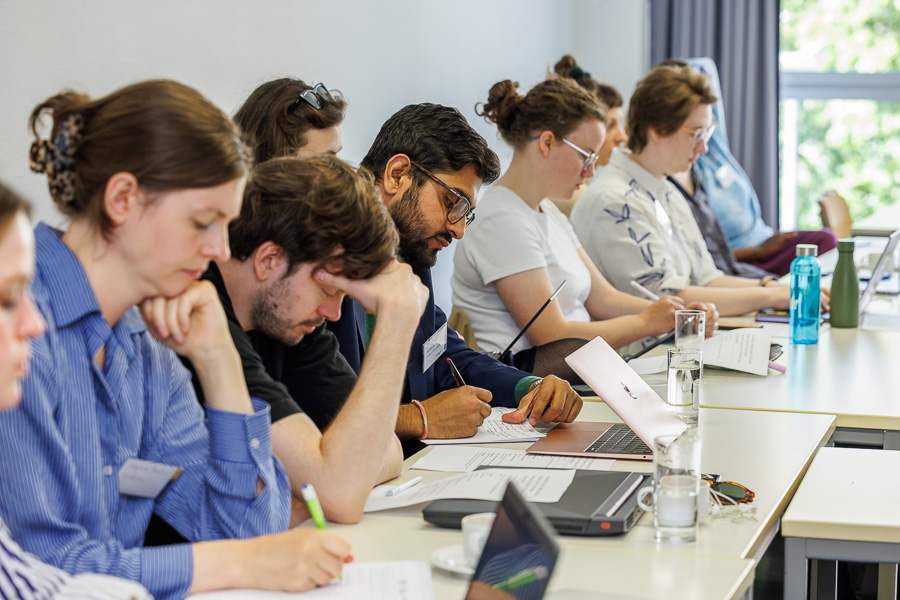Global supply chains, forced labour and import bans - guest lecture by labour law scholar Judith Fudge
The renowned labour law expert Prof. Dr Judith Fudge from the McMaster University in Canada is a visiting professor at the Viadrina until the end of May. In a workshop on Global Supply Chains and Modern Slavery Governance before the end of her stay, she spoke about the impact of import bans on products from forced labour and why wishful thinking does not necessarily adress the situation of the concerned workers.
When asked how she found her way to the Viadrina, Judith Fudge has a clear answer: Eva Kocher. The two met in Hamburg in 2018 and immediately realised they had a lot in common: their commitment to interdisciplinary perspectives, for example, and their feminist work. They also both work on global supply chains. Before she retires this year, Judith Fudge decided to come back to the Viadrina. "I really liked Eva Kocher's research team and was excited about their research and I knew she had a group of colleagues working on supply chain regulation," she says, explaining her motivation. She gave various lectures, presentations and discussions at the Viadrina and decided together with Prof. Dr Eva Kocher to organise a workshop.
photo gallery
The result was the workshop "Global Supply Chain and Modern Slavery Governance - Narratives, Regulatory Practices, and Accountability", which took place in mid-May. The idea was to bring together Viadrina's expertise on the topic and exchange ideas with guests from other universities. Over the course of the day, Prof. Dr. Ulla Gläßer and Prof. Dr. Markus Beham from the Viadrina spoke alongside many others. Eva Kocher hosted the all-day workshop, while Judith Fudge opened it with a short presentation entitled "Getting off the Ban Wagon: Why Workers' Advocates Need to Be Cautious About Endorsing Forced Labour Import Bans".
She discusses the USA, Mexico and Canada, where such import bans are already in place. She explains how these bans came about historically, their background and their actual impact. In Judith Fudge's view, one of the biggest problems is that these bans often do not adress the actual situation of workers and the conditions under which they work. These import bans, which may initially sound promising, can sometimes have the opposite effect. If economic players lose access to certain markets as a result, this can mean increasing pressure on wages and working hours, for example.
This is just one of many problems that Judith Fudge identifies when thinking about the legal handling of forced labour. The debate about such import bans is complex. Judith Fudge would therefore like to see more nuance in the discussion, more realism than wishful thinking. Her focus is clear: to improve the situation of the workers concerned. With a lot of wishful thinking, such import bans on products from forced labour could certainly be designed to improve the conditions of the workers, Judith Fudge says. At their core, however, these bans are designed to protect the domestic markets and workers in which these import bans are adopted. She therefore calls for forced labour to no longer be treated as an external problem: "Instead of treating forced labour as a problem that happens 'over there', it is important to reframe forced labour as a symptom of deeper systemic issues."
Translated by DeepL and edited
Back to the news portal



Share article: